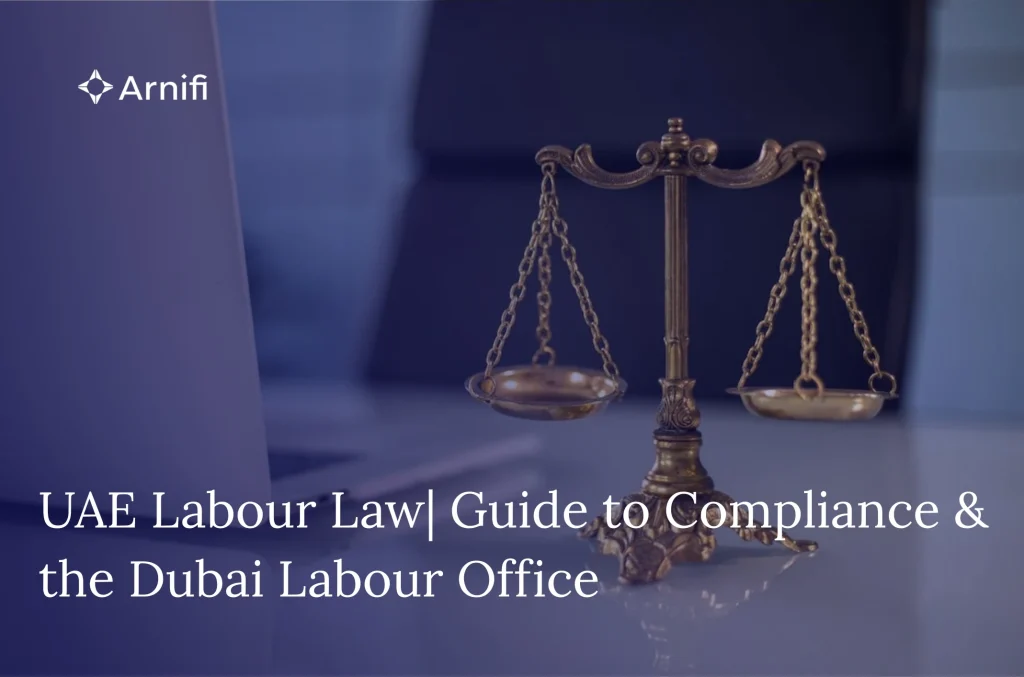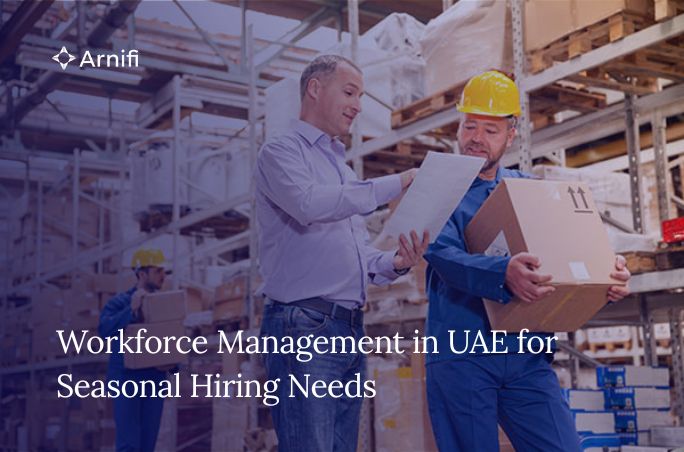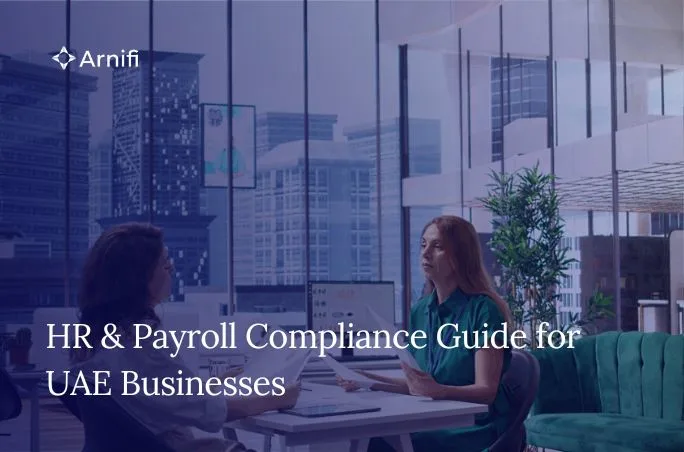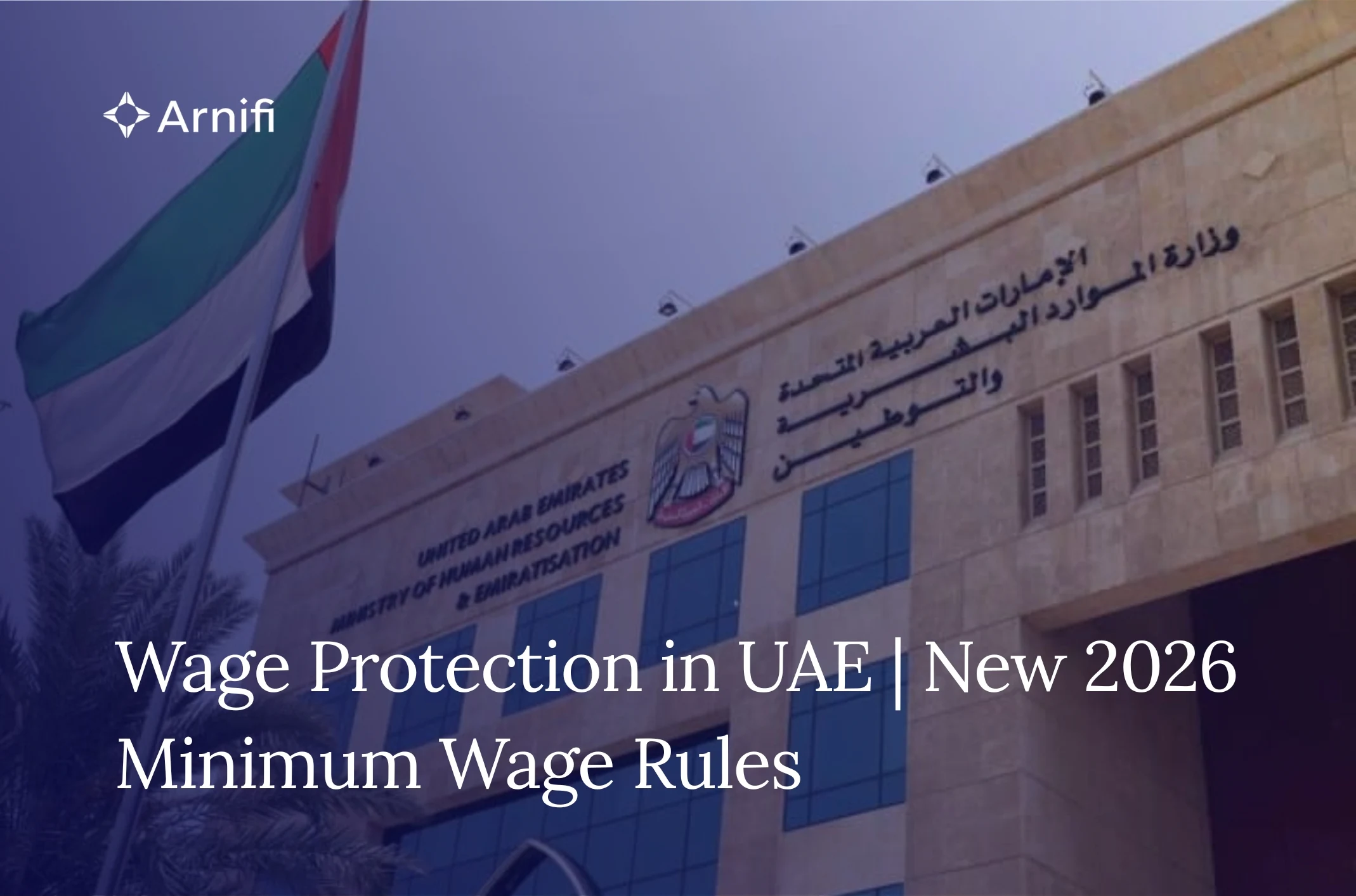Understanding UAE Labour Law and the Role of the Dubai Labour Office
by Rifa S Laskar Nov 05, 2025  7 MIN READ
7 MIN READ

If you’re operating in the UAE or working in the region, the moment you hear UAE labour law, you should also be thinking about how the Dubai labour office fits into the picture. The Dubai labour law sets the rule-book for employment relationships & the UAE labour office is one of the key gateways for implementing it in Dubai. In this article, you’ll walk through what the law covers, who is eligible, the steps you need to follow & how the labour office plays a central role.
Table of contents
1. Introduction
If you are thinking to set up a business in Dubai or you’re an employee who’s signing your first contract there. Now you need to make sure that you know your rights and obligations are under the UAE labour law before you sign anything. Why? Because the labour law is not just a formality, basically it defines how you work, how you get paid, how you leave & the rules set by the UAE labour office ensure those rights are protected or enforced.
2. Why the Labour Law matters
The UAE labour law, especially the Federal Decree‑Law No. 33 of 2021, governs employment in the private sector across the UAE
Here’s what it brings:
- It clearly defines how employment contracts must be written, also how they end & what both the sides can expect when terms change
- It specifies how many hours employees can legally work each day or week in addition to how overtime and paid leave are calculated
- It bans discrimination, ensures equal pay for equal work & strengthens workplace safety to protect every employee on the job
- It gives both sides clear rights and responsibilities, which also helps to avoid confusion, disputes & unfair treatment in everyday work situations
And the UAE labour office, as part of the wider federal and local system, is the place where many of the practical steps happen, like registration, contract validation & dispute resolution. So understanding both the law and the office is essential.
3. Scope| Who is covered
Under Dubai’s labour law:
- Almost all private-sector employees, whether UAE nationals or expatriates, are protected under the UAE labour law’s employment provisions
- Government employees and domestic workers in certain roles fall outside the law’s scope & they follow separate employment regulations instead
- Employees in free zones like DIFC or ADGM operate under their own labour rules, not the standard labour law
- If you work in Dubai’s private sector outside free zones, the UAE labour office ensures you comply with this law
What this means is, if you are in Dubai and working in the private sector that is outside special free zones, you’ll fall under Dubai’s labour law. The Dubai labour office will expect you to follow that framework.
4. Types and Eligibility
Here’s where I break it down in pointers:
Types of employment under the Dubai labour law
- UAE labour law now requires most employees to have limited-term contracts, which gives both sides clear start and end dates.
- Part-time, temporary & flexible job options are officially recognised, which allows employers and employees to agree on varied work arrangements.
- Old indefinite contracts are being replaced by fixed ones to create consistency and protect both employer and employee rights.
Eligibility & criteria
- Every employer must hold a valid trade licence and be properly registered with the concerned authority before hiring staff.
- Workers must meet the legal age, health & qualification standards. This ensures fair and safe employment under the Dubai’s labour law.
- If your employment is processed through the UAE labour office, your contract must be correctly registered and officially approved.
When you deal with the UAE Labour Office
- The labour office handles applications for new work permits, renewals & modifications whenever employment details change.
- Employees or employers can file any dispute at the labour office to resolve salary & contract or any termination issues easily.
- The labour office ensures that your employer fully follows the labour law, which maintains legal and transparent workplace practices in Dubai.
5. Steps to Comply With UAE Labour Law
Here are the step-by-step pointers for say, an employer hiring a private-sector employee in Dubai-
- Make sure that your company holds a valid trade license and it is properly registered with the Dubai or the federal authority.
- Draft a fixed-term employment contract that does not exceed three years & that clearly defines the job role, pay & termination terms.
- Upload the employment contract and the work permit application through the UAE’s labour office portal for official verification and approval.
- Give the employee a copy of the signed contract and explain key rights like working hours, leave & termination rules.
- Keep accurate logs of working hours, overtime, leave & salaries through the Wage Protection System to ensure timely payment.
- Follow the legal notice period and pay all end-of-service benefits which is exactly as required under the labour law.
- If any disagreements arise, you need to approach the Dubai labour office or MOHRE with documents like payslips and contracts for fair mediation.
6. Key Terms You Should Know
- Fixed-term contract – An employment agreement lasting up to three years, clearly defining job terms, renewal conditions & termination rights under the labour law of UAE
- End-of-service gratuity – A mandatory payment employers owe when an employee leaves after completing service, calculated as per the labour law of the UAE’s provisions.
- Wage Protection System (WPS) – WPS is a digital payroll platform ensures that employees receive salaries on time & are directly monitored and enforced under the labour law.
- Labour dispute resolution – A formal process where employees or employers approach the Dubai labour office to settle workplace disagreements quickly and fairly.
7. FAQs
Q1. Can I terminate a fixed-term contract early?
Yes, but both sides must respect the agreed notice period or pay compensation for early termination.
Q2. Does the Dubai labour office handle free-zone employees?
No, free-zone employees follow their own internal labour regulations, not the general ones used outside free zones.
Q3. How long can a work week be?
Most employees can work up to 48 hours a week, typically divided into eight hours a day.
Q4. What happens if my employer doesn’t register my contract?
You may struggle to prove your rights, so it’s best to file a complaint through the official labour office.
Q5. Are unlimited contracts still valid?
No, older unlimited contracts must be converted to limited ones under the updated employment framework.
8. Conclusion
If you’re working or hiring in Dubai, you need to understand how the UAE labour law shapes every employment relationship it’s not optional, it’s essential. The law sets the rules & the Dubai labour office makes sure they’re followed. Get your contracts in order, keep your paperwork clean & stay compliant. When you follow the right process, both employers and employees win less conflict, more clarity & simpler operations.
At Arnifi, we guide businesses and professionals through every step of UAE employment compliance from drafting contracts and handling registrations to resolving workplace issues.
Get in touch with Arnifi today to ensure your HR and legal setup aligns perfectly with UAE labour regulations.
Top UAE Packages

Related Articles
Top UAE Packages



